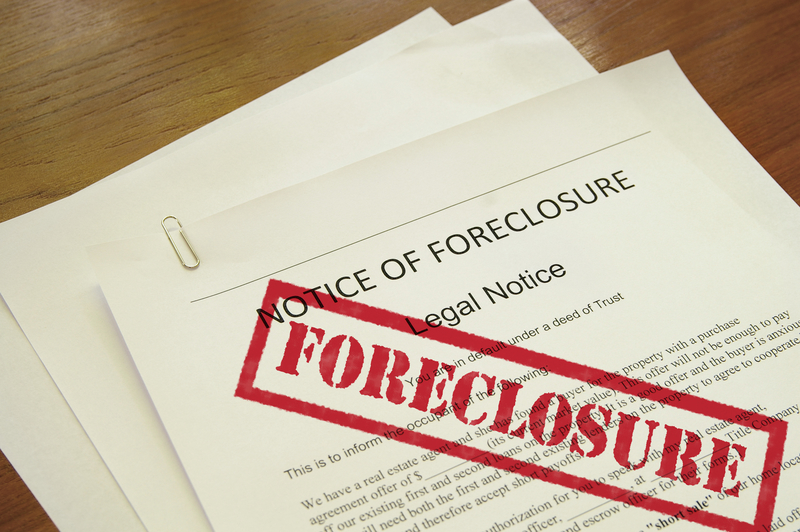Non-Recourse Loans in Atlanta, Georgia
With a non-recourse loan, no personal guarantees are required. In the case of a default, the lender can only take possession of the subject property. Thus, the borrower’s personal assets are not at risk.
Why You Should Join the Non-Recourse Loan Club?
Congratulations! If you are reading this and wanting to learn more about non-recourse financing, then you have the opportunity to join one of the most exclusive groups in America – The Non-Recourse Loan Club.

There isn’t really a club. It is just that Non-Recourse Lending is one of the best-kept secrets that an elite group of mostly wealthy developers and investors of commercial real estate reap the benefits of. In fact, these high net worth individuals have real estate attorneys, estate trust attorneys and financial advisors that insist they only obtain non-recourse financing.
Just so you know, non-recourse loans are available to the average Joe in America too. You just need to have good credit, a good income property in mind, and the down payment. So why do so few of the middle class seem to know what a non-recourse loan is? It is not that the lenders that offer these loans try to keep them a secret. It’s just that the majority of investment property lending is done by commercial banks which almost never offer non-recourse loans to their customers. Why don’t they? Because if they did they would be giving up their largest most powerful weapon – Recourse.
| FHA | Low 85% LTV | 35 year Fixed Rates |
| CMBS | 75% LTV | Great 10 year fixed rates, lower net worth ok |
| Life Company | 70% LTV | Very low 25 year fixed rates |
| Fannie Mae | 80% LTV | Interest Only, Fix rate up to 30 years |
| Freddie Mac | 80% LTV | Interest Only, 10 Year fixed, 20-year term |
| REIT | 70% LTV | Low rates, 10 years fixed |
| Private Funds | Not perfect credit, lower net worth ok |
Call us: 503-376-7303 to find the best Non-Recourse Loan for you
Why Banks Love Recourse Loans
Recourse gives the lender an insurance policy. You give it to them when you sign a guarantee that legally makes them whole should they have to foreclose on the subject property and not be able to recover the full amount of their loss from selling the property. Making them whole means that the lender can use any of your personal assets to make up a deficiency should they sell the property for less than you owe them. This deficiency can include back mortgage payments, delinquent property taxes, real estate commissions, and expenses to manage and maintain the property while they are selling it. Let’s not forget the bank's attorney and court fees. Recourse legally gives the bank carte blanch to go after your home, your bank accounts, your autos, your RV, and even your child’s 529 education account to pay for the deficiency. Only your retirement funds are safe.

And, by the way, the bank already has a list of all your assets. You listed them on their loan application. Reporting requirements in your loan docs have you update them annually. They likely made the loan to you because you have other assets. Yes, Banks love it when you have substantial other assets. I have clients that purposefully do not list all their assets on a bank application when taking out a recourse loan – not that we advise it. But it is obvious why.
A Non-Recourse Loan Lowers Your Risk
Just think about it. Commercial Real Estate Investing is a business. Sure, it is often sold as a passive investment. But experienced investment property owners will tell you that to be successful there is not much that’s passive about it. And like all businesses, there is an inherent risk. Most businesses that go belly up don’t do so because they have a mediocre product or service. The number one reason that businesses fail in America is poor management. This is true for commercial real estate investments too. The second reason is that the owner is just in the wrong place at the wrong time. An example: You purchase a 30-year-old “C” class apartment complex with no amenities and dated floor coverings, fixtures, and appliances. Two years later 3 brand new multifamily developments with club houses, swimming pools, and brand new everything are built around you – slowly stealing your tenants.

Would you not take more real estate investment risks if you did not have to personally guarantee the loan? The answer is likely YES! Would you have more opportunity to soar as a property investor if you could find high net worth individuals to invest in your venture and contribute some of the down payment? Another YES, I would assume. And, would you not find it easier to attract investors if you could offer them the protection of non-recourse financing? Another likely YES!
I have been a commercial mortgage broker for over 20 years. Today, over 70% of the loans we do at Apartment Loan Store are non-recourse. And over 90% of the deals we put together that have passive investors have obtained a non-recourse loan from us. To further illustrate the value of joining the non-recourse loan club I would like to tell you a story about one of my clients.
The Real Estate Empire of Daniel G
In 2005, Daniel G, was a 58-year-old recently retired and widowed school teacher living in Tulsa, Oklahoma. I met Daniel at a commercial real estate seminar where I was a guest speaker. Full of enthusiasm would be an understatement to describe Daniel. Intense, focused ambition is more accurate. Gray hair, but looking fit and younger than his years he was full of confidence and very articulate when he came up to me and said, “You don’t know this yet, but you’re going to do a big loan for me.” He went on to tell me that he had retired early so he could work full time at his true passion – real estate investing. He wanted to leave a financial legacy for his kids. Starting 18 years prior, he had amassed what he called his real estate empire of 14 single-family rental homes which he proudly owned free and clear. “Why,” he stated, “should I run all over town maintaining all these properties when I can buy one large commercial complex with all the units under one roof”? He certainly had a point there.
Daniel already had an accepted offer from one buyer for 12 of his rental homes. He was going to do a 1031 tax-deferred exchange into the purchase of a mixed-use building. He planned to rehab it and repositioning it with much higher rents just like he had done with all is single-family home rentals. When he excitedly told me his plans for the new property I was hooked and said, “I would be pleased to work with you.”

The subject property was located right in up and coming to downtown Tulsa. Built in the forties, it had a lot of character. It had 9,000 square feet of commercial space on the first level. This consisted of a rented real estate office and 3 unleased retail spaces. There were 36 one bedroom, one bath apartment units on the 4 floors above that were dated and 60% occupied. Daniel planned on extensively remodeling these and converting them to 2 bedrooms 1.5 bath units. Building the tenant improvements to a suite for the 3 unoccupied retail spaces was also in his plan. To make this an even better deal, the city was offering a grant of $350,000 in urban renewal funds.
Daniel’s offer was accepted at $2,850,000. His budget included $720,000 for improvements. With closing costs, this brought the project up to $3,700,000. He put 35% down and I arranged a 24-month bridge loan for 2.4 million dollars.
So What Happened?
The great recession happened. Daniel completed the rehab brilliantly, on time and under budget. His development was a huge success. He had the apartment units 96% occupied and the commercial spaces 100% occupied – all with much higher rents just as he had planned. This enabled him to arrange a $2.5 million dollar perm loan to take out our temporary bridge loan with his local bank in early 2007. By October of 2009, downtown Tulsa was in a steep decline and the national economy was in deep recession. First, the real estate office went out and then two of the three retail spaces closed their doors. Only a thrift store that was doing a booming business remained on the first level. Most of the apartment units were full but many with lower rents.

Get This Loan Off Our Books!
In February of 2010, Daniel was in shock when he got a letter from his bank stating that his loan on the mixed-use building was in default and that he had 90 days to refinance elsewhere. Daniel went to the bank and told his buddy, Brian, a senior vice president, “there must be some mistake. I have made all my payments on time, I have excellent credit, and you know I am good for the payments! I have banked with you for over 10 years. Please don’t do this.” The vice president replied, “The last thing I want to do is call your loan, you are not only a good customer, but you are also my favorite customer. But we are between a rock and a hard place. Our survival is at stake too. It’s the (blank) bank regulators. They want this loan off our books.”

The bank officer went on to explain that with the three vacant retail spaces the debt service coverage ratio fell from a 1.65 to a 1.15. This was below the minimum 1.35 DSCR requirement in Daniel’s loan documents. This is what put him in default. Furthermore, downtown Tulsa was in freefall. To make matters worse, the bank had the building recently appraised and the value had dropped by about 25% to $2.7 million dollars. This made Daniel’s loan to value so high that the bank would have to put up reserves (funds they could not lend) equal to the outstanding loan balance to satisfy the regulators.
I tried to do an emergency bridge loan for Daniel and even negotiated a $400,000 reduction in principal with the bank if we could obtain financing. However, with downtown Tulsa’s economic downturn, the empty commercial spaces, and the decline in property value, no one wanted to lend enough to pay off the bank.
Daniel was advised to declare bankruptcy. But this was not who he was. He stated that he did not believe in bankruptcy. And why should he ruin his good name and credit when he could ride this thing out. The good news was that the bank was going to give him more time. They were so pleased that he was negotiating with the federal government to lease the entire first floor.
The Foreclosure
Four months later Daniel got a letter with his last mortgage payment check enclosed. The bank was starting foreclosure. They gave Daniel 35 day’s notice to pay off the loan in full, or the property would be sold at public auction to the highest bidder. The letter was not even from his bank but from a larger bank that had taken it over.
Unfortunately, Daniel’s loan documents mandated a non-judicial foreclosure and had a “Power of Sale Clause.” This mandated that the bank could foreclose outside of the court system (legal in Oklahoma). In other words, the lender does not have to file a lawsuit to foreclose. Then there was the guarantee that Daniel signed when he took out the loan. This allowed the bank to obtain a deficiency judgment should the bank sell the property for less than Daniel owed them.

The Deficiency Judgment
Daniel says that being served with the deficiency judgment was very unpleasant. The bank did not seem to even try to get a fair price for the property. They sold it to the highest bidder for only $1.7 Million Dollars. They were going after him for a deficiency of $746,000. In the document, his name was listed as the Judgment Debtor, and the Bank was listed as the Judgment Creditor. There were liens filed against his 2 remaining rental homes and levies filed against his bank accounts. His car, along with his two antique Buicks also had liens filed on them. How did they know about the Buicks? Oh, of course – they were listed on his personal financial statement. Through the advice of an attorney early on, Daniel had homesteaded his home which made it exempt from the deficiency judgment. His retirement was also exempt.
What If Daniel Had Obtained a Non-Recourse Loan?
This is a very simple answer. In the case of a default on the loan, all Daniel would have to do if the property failed and could not be turned around is to hand over the keys to the lender. Sure, this would still be painful. But his personal assets would not ever come into the equation.

Non-recourse loans require that the key principals vest the property in a single asset entity like an LLC. The loan would have been made to the LLC, not to Daniel personally. In the occurrence of a default, the lender’s only recourse is against the LLC that owns the property directly. And being that the LLC only owns the subject property and no other assets, the lenders only recourse is to take back that property. If the lender sells the property for less than the principal balance, well, that’s the lender's problem.
The term that is used legally is that the borrower is “exculpated” from being liable. This would also not likely affect Daniels personal credit since the loan was not made to him personally.
What Type of Loans Are Typically Non-Recourse?
Securitized loans that are sold have mortgage-backed securities on Wall Street like HUD/FHA, Fannie Mae, and Freddie Mac are typically non-recourse. Commercial Mortgage Backed Security (CMBS) loans are always non-recourse. Many loans made by Insurance Life Companies and Real Estate Investment Trusts (REIT’s) are non-recourse. Hedge Fund and Private lenders that do Commercial Bridge and Construction Loans are often non-recourse as well.

Can a Borrower Ever Be Personally Liable For A Non-Recourse Loan?
Surprisingly the answer is YES. Almost all non-recourse loans require the borrower to sign the “Bad Boy Carve-Outs.” These make the loan revert to recourse if there is fraud involved or gross negligence on behalf of the borrower. These occurrences include:
- The borrower commits a criminal act on the property
- The borrower commits fraud by purposefully misrepresenting the financials of the subject property during the loan application process or after the loan is made in the annual reporting documentation.
- The borrower has the single asset entity (such as an LLC) declare bankruptcy on the property.
- The borrower allows the insurance on the property to expire without renewal.
- The borrower does not allow inspections required by the lender or the lender’s agents to be done.
To find out more about non-recourse lending or if you qualify for a non-recourse loan for your project, please call one of our friendly experienced loan specialists at Apartment Loan Store: 503-376-7303

By Terry Painter/President Apartment Loan Store and Business Loan Store
(Read about how non-recourse loan interest rates are determined)
1. Where do you get a Non Recourse Loan?
It is very unlikely that you can just walk into your bank and get one. The majority of commercial banks would feel naked without their personal guarantees, which is the foundation of a recourse loan. However, there are many more sources for non-recourse mortgages than you may think. These are listed below. And, I know you want to know the requirements for each lender so I have included this as well. No use applying for a mortgage that you will not qualify for. It will be helpful if you keep in mind that the one thing that non-recourse lenders love the most is a high quality property or one that has a great upside like being in a good neighborhood with under market rents. If you can start out by getting these lenders excited about the property, you have a much better chance of having the other requirements fall into place.
Non-recourse mortgages are offered by Government-Backed Agencies, Wall Street Securitized Money, Insurance Money, Real Estate Investment Trusts (REIT’s) and private lenders. Why are these sources not easier to find? It’s just that most commercial real estate borrowers are still getting their loans from commercial banks which seldom offer non-recourse. Banks are regulated by the FDIC, which can make it miserable for smaller and weaker banks to take on higher risk deals. Therefore, these banks want to scare the bejesus out of you with their personal guarantees. Banks that have strong balance sheets, and high cash to loan ratios plus high deposit to loan ratios can offer non-recourse if they want too. Often though, they just do not feel safe doing so. If they have too much debt to write off annually due to non-preforming loans it makes them look very bad to their shareholders and bank regulators. Recourse is the largest weapon in their arsenal (see Article on *Why You Should Join the Non -Recourse Loan Club.)
Independent mortgage banking firms and experienced commercial mortgage brokers can place your loan with Fannie Mae, Freddie Mac, and HUD if you are interested in non-recourse financing for an apartment building. These government-controlled agencies regulate the terms and conditions of the financing, but do not make the loans directly.
For all other commercial properties including multifamily, we are talking about retail, office, hospitality, industrial, self-storage and more, these are the non- recourse lending sources available in America: Commercial Mortgage Backed Security Loans (CMBS), Life Companies, Real Estate Investment Trusts (REIT), and Private Lenders. Not many, but some commercial banks also make these loans and sometimes you can negotiate with them for partial non-recourse. At Apartment Loan Store, or another experienced mortgage-banking firm representing all these sources, you will be matched intelligently with the non-recourse loan program that is right for you.
2. Non- Recourse Loan Lenders
With Terms and Borrower Qualifications
I. Fannie Mae (Multifamily Only)
Rates: Fix Rate Term: 5 – 30 years
Interest Only Available DSCR: 1.25 Assumable
Loan size: $750,000 - $250,000,000 Territory: Nationwide
Loan to Value: Up to 80% Amortization: 30 years
35% Commercial Space Allowed Minimum Credit Score: 680
Net Worth Required: Equal to the Loan Size No Tax Returns required
II. Freddie Mac (Multifamily Only)
Rates: Fix Rate Term: for 5 – 10 years.
Interest Only Available DSCR: 1.25 Assumable
Loan size: $1.000,000 - $100,000,000 Territory: Nationwide
Loan to Value: Up to 80% Amortization: 30 years
25% Commercial Space Allowed Minimum Credit Score: 660
Net Worth Required: Equal to the Loan Size No Tax Returns
III. HUD/FHA (Multifamily Only)
Rates: Fix Rate Term: 30 - 35 years.
Interest Only Available DSCR: 1.176 Assumable
Loan size: $3,000,000 - $150,000,000 Territory: Nationwide
Loan to Value: Up to 85% Amortization: 35 years
25% Commercial Space Allowed Minimum Credit Score: 660
Net Worth Required: Flexible No Tax Returns
IV. CMBS (All Commercial Property Types)
Rates: Fix Rate Term: for 5 or 10 years
Interest Only Available DSCR: 1.25 Assumable
Loan size: $2,000,000 - $500,000,000 Territory: Nationwide
Loan to Value: Up to 75% Amortization: 25 - 30 years
Unlimited Commercial Space Allowed Minimum Credit Score: 680
Net Worth Required: Flexable No Tax Returns
V. Life Companies (Most Commercial Property Types)
Rates: Fix Rate Term: for 5 – 25 years
DSCR: 1.30 Assumable
Loan size: $5,000,000 - $750,000,000 Territory: Nationwide
Loan to Value: Up to 70% Amortization: 20, 25 and 30 years
Unlimited Commercial Space Allowed Minimum Credit Score: 720
Net Worth Required: Equal to 1.5% of Loan Tax Returns Required
VI. REIT’s (Multifamily Preferred, but other types considered)
Rates: Fix Rate Term: for 5 – 15 years
DSCR: 1.30 Assumable
Loan size: $3,000,000 - $30,000,000 Territory: Nationwide
Loan to Value: Up to 75% Amortization: 30 years
25% Commercial Space Allowed Minimum Credit Score: 700
Net Worth Required: Equal to the Loan Size Tax Returns Required
VII. Commercial Banks (All Commercial Property Types)
Rates: Fix Rate Term: for 5 – 10 years
DSCR: 1.25 – 1.35 Not Assumable
Loan size: $1,000,000 - $25,000,000 Territory: Regional (Call Us)
Loan to Value: Up to 75% Amortization: 30 years
25% Commercial Space Allowed Minimum Credit Score: 700
Net Worth Required: Equal to the Loan Size No Tax Returns
VIII. Private Funds (All Commercial Property Types)
Rates: Fix Rate Term: for 1 – 4 years
Interest Only DSCR: 1.25 Not Assumable
Loan size: $1,000,000 - $250,000,000 Territory: Nationwide
Loan to Value: Up to 75% Amortization: Interest Only
Commercial Space Allowed Minimum Credit Score: Negotiable
Net Worth Required: Negotiable Tax Returns May Be Required
**Call one of our friendly loan specialists to get more info and get pre-qualified
3. Eight Non Recourse Loan Qualifications
I. Property Must Have Strong Historical Financials – This is required for permanent non-recourse financing on stabilized properties. If you think about it, the lender is really making the loan to the property, not the individual borrower. Therefore, it is important for the subject property to have strong current and historical income. For most loan programs a 1.25 Debt Service Coverage Ratio or higher is preferred. Higher means that the property has extra net income to cushion a rainy day. A non-recourse bridge loan used to rehab and/or increase occupancy does not need strong historical income if the property is in a good location and rental occupancy and comps are strong.
II. Rent Concessions Should Be Minimal – A rent concession is a financial incentive to the tenant to sign a lease. Concessions range from free internet and cable TV for 6 months which is not a problem to the lender, to one or more free month’s rent when you sign a lease. If the majority of the tenants are getting rent concessions, the lender will annualize this and take the amount off the gross rental income, which can lower your loan amount. Lenders will review the leases to look for rent concessions.
III. Property Should Have Good to Excellent Collections – Just because a tenant is on the rent roll does not mean they are paying the rent, or paying the rent on time. Non-recourse lenders will be looking for signs of no pays and slow pays. This is why these lenders prefer good safe neighborhoods in strong economic markets. Again, they are firstly making the loan to the property and to you secondly. A trailing 12-month report showing actual gross rental income will be compared month by month to the total gross income on the rent roll. If there is a large disparity between what was collected and what should have been collected this will be a red flag to the lender and up to a year of bank statements will likely be required to verify collections. For a permanent loan, If the lender determines that the property is financially distressed due to low collections they will not make the loan. It would then make sense to apply for a bridge loan.
IV. Property Should Be in Good Condition – And, again, the lender is making the loan to the property first, so having the subject property in good condition is essential for a permanent loan. A hold back from the loan proceeds can usually be arranged for immediate repairs as long as this is a reasonable amount and not too large. A non-recourse bridge lender will allow you to put the property in good condition if there is a lot of deferred maintenance as long is the property is in a good location.
V. Property Should Be in a Good Location – This is again obvious since the lenders only recourse is to take the property back if it is non-preforming and a default cannot be cured. Preferred properties are located in larger cities where there are plenty of jobs. Properties that are in high crime neighborhoods, low income neighborhoods, have high vacancy and low rent submarkets may not qualify.
VI. Property May Need Professional Management – If you have experience managing a similar type and size of commercial property you can likely qualify to manage it. Otherwise, a professional management company will be required. If you live far away from the property or in another state the lender will likely require you to use professional management.
VII. Property Will Need Good Quality Tenants – Anyone can rent an apartment unit. As mentioned above, non-recourse lenders require that multifamily properties have tenants that pay the rent reliably and on time. Lenders want a majority of annual leases, but some month-to-month tenancy will be allowed for loans on apartment buildings. For all other commercial property types, the quality of the tenant and the quality of the lease is very important. Here is an example of a property that will not qualify: A retail strip mall has a majority of mom and pop businesses that are on month-to-month or annual leases. Non- recourse lenders prefer that there be some national tenants that have good credit ratings and 5 years or more left on their leases. Having an anchor tenant like a grocery chain is even better. Single tenant properties with a good tenant credit rating can work. Single Credit tenants with high credit ratings such as Wal-Mart and Wallgreens, with 10 years or more left on the lease are every non-recourse lender’s dream.
VIII. Key Principals Will Need Good Financial Strength, Good Credit, and Experience – Most non-recourse lenders require the key principals to have a combined net worth equal to the size of the loan, have at least a year of post-closing mortgage payments in cash, and have credit scores of 680 on up. Experience of at least 2 years owning and/or managing a similar type and size property is preferred.
4. What is the Difference Between a Non Recourse and a Recourse Loan?
I. A recourse loan is made to the individual and requires a personal guarantee by all key principals. Most recourse lenders require that the guarantee cover 100% of the principal balance plus any additional expenses should there be a foreclosure or repair to the property that the borrower has neglected. Proportional guarantees between more than one key principal or partial recourse can in some cases be arranged. In the case of a non-curable default, the lender will not only have the right to foreclose on the subject property and sell it, but also if there is a deficiency (they sell the property for less than you owe them), they can go after any of your personal assets. They can go after your home, your vacation home, your autos, RV’s and all your personal bank and security accounts. Also your child’s 529 Education bank account.
II. A Non-Recourse Loan is made to a single asset entity like an LLC. If you default on a non-recourse loan the lender’s only recourse is to take the property back. They cannot go after any of your personal assets.
III. A Non-Recourse Loan May Be More Difficult to Qualify For. This is because the loan requires the property to be in a larger city, be in good condition (unless you are applying for a bridge loan to rehab the property), and have good historical financials. Most non-recourse loans do not require tax returns, but they do require strong borrower financials and experience.
IV. A Recourse Loan May Have Lower Loan Expenses. Non-recourse loans typically charge more for lenders’ legal, property condition and engineering reports, appraisals and ancillary loan expenses compared to community banks doing recourse lending.
*For more on this see Difference between a Non-Recourse and Recourse Loan
5. Is a Non-Recourse or Recourse Loan Right for You?
Benefits of a Recourse Loan
The number one benefit of recourse loans is that they are so plentiful. All banks make them and you will have many more loan programs to choose from. In addition, they tend to have much lower loan expenses for loan fees, third party reports like appraisals, loan processing and legal. If you have always had recourse loans and know that the subject property is just about never going to fail, a recourse loan could be just fine for you.
Another benefit of recourse lending is if the subject property is in a smaller population center. Banks are located right there and know the market. Non- recourse lenders mostly like larger MSA’s.
Benefits of a Non-Recourse Loan
The number one benefit of a non-recourse loan is asset protection. Should the subject property fail and go through a foreclosure and there is a deficiency after the lender sells the property, your other assets will not be at risk. All you have to do is turn the property over to the lender, which although painful is nothing compared to the time and legal expense involved with a foreclosure.
Non-Recourse Protects Your Investors
If you are using investors for some of the down payment, it will be much easier to attract them because they will not be risking their personal assets by guaranteeing a loan. The majority of our developers who come to Apartment Loan Store for a commercial construction loan use investors for a portion of the down payment. They tell us they would not be able to do this if we did not provide a non-recourse construction loan roll over to a non-recourse permanent loan.
Estate planning is another important benefit. You can pass the property and the loan on the property onto your heirs (see more on this below).
6. When Can A Non-Recourse Loan Become Full Recourse? And The Bad Boy Carve Outs
Often when our borrowers read their loan documents they come across what our industry calls “The Bad Boy Carve Outs” and the documents that turn the property over to the lender if there is a default.They then may think that the loan really does have recourse. Actually, if the borrower commits fraud and does not take care of their obligations these non-recourse loans can revert to recourse.
The Bad Boy Carve Outs – The lender will have the right to make the loan full recourse if one or more of the following occur:
I. The borrower is engaged in criminal activity on the property
II. The borrower commits fraud by purposefully misrepresenting the property financials, their personal financials when they are applying for the loan or when they are doing the annual financial reporting.
III. The borrower does continually does not pay property taxes on the subject property.
IV. The borrower changes the insurance without lender approval and it no longer meets the lender’s insurance requirements.
V. The borrower does not allow the lender or the lenders agent to inspect the property when given notice to do so.
VI. The borrower has the single asset entity like an LLC that owns the property directly declare bankruptcy.
VII. The borrower is in violation of the environmental indemnification.
7. Why Non-Recourse Loans Benefit Estate Planning
Most commercial real estate borrowers do not think much about what happens to their loan if they die. They often assume that when their heirs inherit the property they inherit the loan as well. Unfortunately, if there is a recourse loan in place, this might not be the case. The heirs will likely have to qualify with similar qualifications as the original borrower. If the heirs do not qualify, the loan can be called. Think about what a nightmare this can be for your heirs if they have to scramble at the 11th hour to find a loan they can qualify for.
With a non-recourse loan, the loan is made to a single asset entity like an LLC, not an individual or individuals. Therefore, the heirs inherit the LLC that owns the property. In most cases the financial qualifications of the heirs is not questioned as long as the loan payments continue to be made on time.
Recourse loans have from quarterly to annual reporting requirements for property financials and borrower financials. The loan documents for these recourse loans specify that should the property or the borrower no longer be solvent and no longer qualify for the loan, that the loan can be called due and payable. After all, the lender has made the loan to a property and key principal that qualified. If that person dies, the lender is going to want to make sure the heirs also qualify.
Non-recourse loans also have annual reporting requirements but in most cases they are just for the property financials. Most of these loans did not require tax returns on individuals, so they will not require these for the borrower’s heirs.
8. Non-Recourse Loans For Self Direct IRA’s and 401k’s
Many IRA Investors do not know that they can convert their self directed IRA account from a bank or security investment to an investment in real estate.This is the case for 401K Solo accounts as well. The value of your retirement can grow exponentially because it will not only generate income that will be reinvested until retirement age, but also the value of the property usually goes up.
The government does not allow you to take out recourse financing for this purpose, which would use personal financial resources along with the subject property to qualify for the loan. The lender can only use the IRA’s financial ability and the financial strength of the subject property to qualify for the loan.The lender is not allowed to have the borrower sign a personal guarantee.This as you can imagine requires substantial risk on behalf of the lender. For this reason non-recourse lenders that lend to Self-Directed IRA’s will likely prefer a multifamily property with strong financials in a good neighborhood.To further lower the risk most of these non-recourse lenders require a larger down payment – typically 35% to 50%.
Self-Directed IRA Non-Recourse Lenders
First National Bank of America First Western Savings Bank
(616) 538-6017 (800) 908-8845
First Bank North American Savings Bank
(303) 456-2276 (866) 735-6272

By Terry Painter/President Apartment Loan Store and Business Loan Store
CLOSING 97% OF OUR MULTIFAMILY LOANS AS PROPOSED
Getting the right loan and the lowest rate requires wisdom and finesse. If you’re ready to partner with a team of professionals who’ve built a foundation on straight talk and true strategy, we are the loan store for you.
28+ YEARS OF OVER-DELIVERING VALUE.
HUD Loans are one of the best options with the current level of interest rates. For a complete guide to HUD Multifamily Loans please go here:
